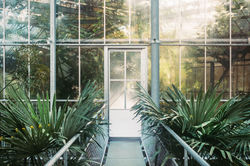 Coriander Seeds |  Organic Carrots |
|---|---|
 Urban Gardening |  Grass grid |
 Transplant |  Cluster of Green Leaves |
 Green House |  Rain on Roof |
 Residential Abstract Building |  apple-2788662_1920 |
 soil-1795909_1920 |  Greenhouse |
high density & urban farming
The migration to urban centres and decreases in farming activities, combined with environmental impacts of imports and their associated carbon footprint has led to the increase in vertical farming practices. Innovations in green energy, water treatment, and hydroponic farming of both local and non-indigenous vegetation in various regions of the world are some of the examples of how environmentally sustainable projects can be achieved.
Gaia Geoscience has designed a self-sustaining vertical farming system which utilizes a fraction of the land footprint of a traditional farm without sacrificing yield. The system is self-sustaining and requires little or no civic supplies, resulting in a lower environmental footprint and operating costs. An integrated smart learning system has been designed to control environmental conditions in each crop centre, which are grown without the use of non-organic means. Production is maximized, costs minimized, and product quality maintained at a consistently high level.
Production is not limited to fruits and vegetables, which would normally be imported for consumption to the local market, but also includes positive byproducts such as fresh water, oxygen, and visual aesthetics.
Our design provides alternatives to expensive imports intended for local markets in addition to an example of how urban environments can contribute to environmental sustainability.
Gaia Geoscience Agronomics systems offer lower operating costs, lower environmental impact, and higher production yields per area than conventional hydroponics and traditional farms.
